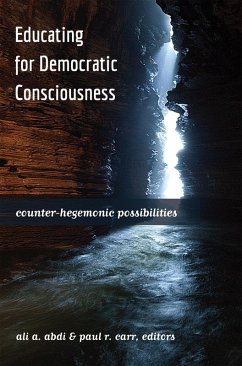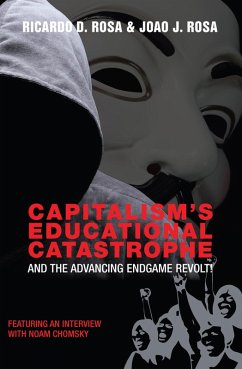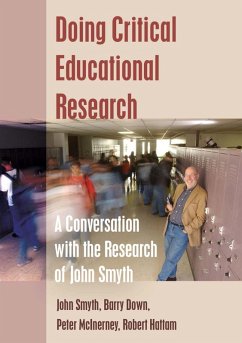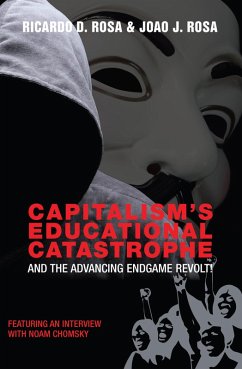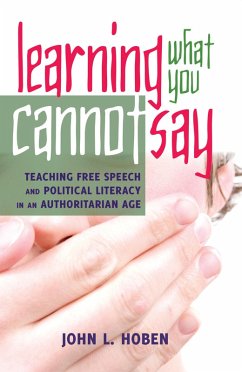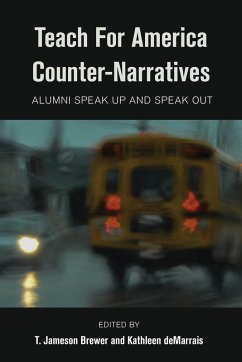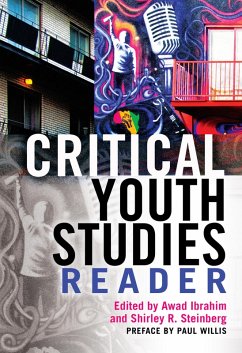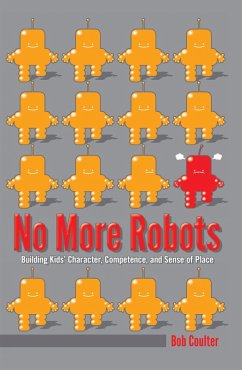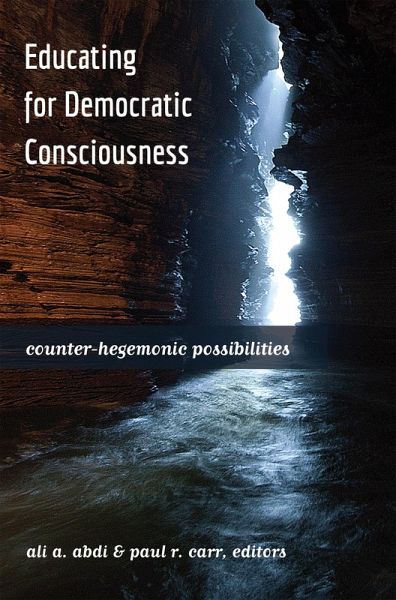
Educating for Democratic Consciousness (eBook, ePUB)
Counter-Hegemonic Possibilities
Versandkostenfrei!
Sofort per Download lieferbar
Statt: 155,70 €**
36,95 €
inkl. MwSt.
**Preis der gedruckten Ausgabe (Gebundenes Buch)
Alle Infos zum eBook verschenkenWeitere Ausgaben:

PAYBACK Punkte
18 °P sammeln!
This book has received the AESA (American Educational Studies Association) Critics Choice Award 2013. There is a widespread, but mainly untenable, assumption that education in Western societies (and elsewhere) intuitively and horizontally aids the democratic development of people. An argument could be made that in contemporary liberal democracies, education was never designed for the well-being of societies. Instead of the full inclusion of everyone in educational development, it becomes dominated by those with a vested interest in the role of the liberal state as a mediating agent that, ultim...
This book has received the AESA (American Educational Studies Association) Critics Choice Award 2013.
There is a widespread, but mainly untenable, assumption that education in Western societies (and elsewhere) intuitively and horizontally aids the democratic development of people. An argument could be made that in contemporary liberal democracies, education was never designed for the well-being of societies. Instead of the full inclusion of everyone in educational development, it becomes dominated by those with a vested interest in the role of the liberal state as a mediating agent that, ultimately, assures the supremacy of the capitalism and neoliberalism. This book extends beyond a theoretical analysis of democratic education, seeking to tap into the substantial experiences, perspectives and research of a wide range of leading scholars from diverse vantage points, who bring themselves and their work into the debate connecting democracy and education, which elucidates the reference to counter-hegemonic possibilities in the title.
There is a widespread, but mainly untenable, assumption that education in Western societies (and elsewhere) intuitively and horizontally aids the democratic development of people. An argument could be made that in contemporary liberal democracies, education was never designed for the well-being of societies. Instead of the full inclusion of everyone in educational development, it becomes dominated by those with a vested interest in the role of the liberal state as a mediating agent that, ultimately, assures the supremacy of the capitalism and neoliberalism. This book extends beyond a theoretical analysis of democratic education, seeking to tap into the substantial experiences, perspectives and research of a wide range of leading scholars from diverse vantage points, who bring themselves and their work into the debate connecting democracy and education, which elucidates the reference to counter-hegemonic possibilities in the title.
Dieser Download kann aus rechtlichen Gründen nur mit Rechnungsadresse in A, D ausgeliefert werden.




